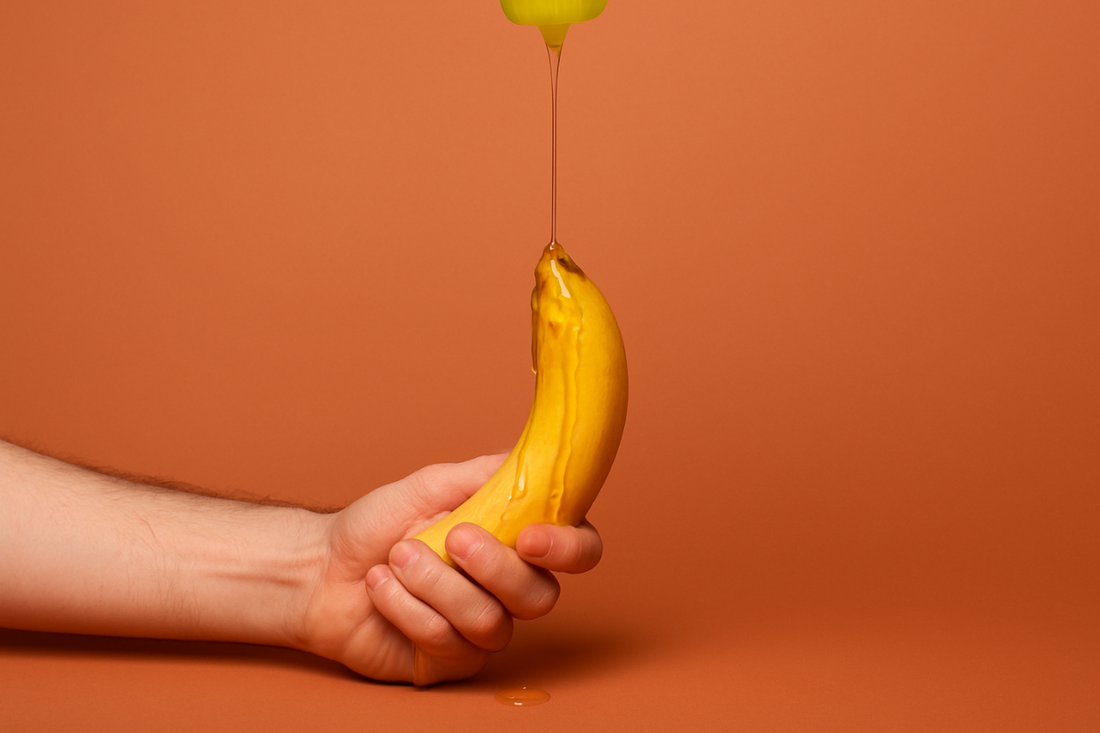
7 Myths About Masturbation - Busted
Why This Conversation Matters
Masturbation is one of the most natural human experiences, yet it’s also one of the most misunderstood. Across cultures, myths and taboos have turned self-pleasure into a subject whispered about with shame, instead of being discussed openly with facts.
At KSutra, we believe that pleasure and health are inextricably linked. By unpacking these myths, you not only reclaim confidence in your body but also discover how self-pleasure supports mental health, relationships, and overall well-being.
What You’ll Learn in This Blog
By the end of this read, you’ll understand:
- The scientific health benefits of masturbation for your mind and body.
- Why masturbation is not a replacement for relationships but a tool for self-awareness.
- How gender myths and cultural taboos have shaped misconceptions.
- The role of safe sex toys in self-pleasure and why choosing body-safe materials matters.
- Practical ways to embrace solo pleasure without guilt or shame.
Myth 1: Masturbation Is Dirty or Shameful
The Truth: Pleasure Is Part of Being Human
Shame around masturbation has its roots in religion, outdated medical theories, and cultural stigma. In fact, in the 18th and 19th centuries, doctors falsely claimed that masturbation caused blindness, mental illness, or infertility.
But modern science tells a different story:
- Reduces stress: Orgasms release dopamine and oxytocin, hormones that calm the nervous system.
- Boosts sleep: Post-orgasm relaxation helps many people fall asleep faster.
- Improves mood: Regular masturbation is linked to reduced anxiety and better body image.
Pleasure is not dirty. It’s biology, psychology, and self-care all at once.
Myth 2: Masturbation Is Only for Single People
The Truth: Self-Pleasure Supports Relationships
This myth stems from the idea that masturbation is a “substitute” for a partner. In reality, research shows that people in relationships who masturbate often report higher sexual satisfaction, not lower.
Why? Because:
- It helps individuals communicate desires more clearly.
- Reduces performance anxiety during partnered sex.
- Keeps sexual energy alive, especially when partners have mismatched libidos.
- Far from being selfish, masturbation is a gift to intimacy, it helps you bring confidence and clarity into your relationship.
Myth 3: Masturbation Kills Your Libido
The Truth: It Keeps Desire Alive
A common worry is that “too much” masturbation dulls desire. But evidence suggests the opposite. Solo play can:
- Increase blood flow to sexual organs, which supports long-term sexual health.
- Maintain hormonal balance, including testosterone and estrogen.
- Enhance arousal pathways in the brain, making partnered sex more exciting.
- Like exercise, the more you use your sexual energy, the stronger and more responsive it becomes.
Myth 4: Masturbation Means You’re Not Satisfied in Your Relationship
The Truth: It’s About Self-Exploration, Not Replacement
Masturbation isn’t a verdict on your partner. It’s a way to:
- Explore your own fantasies.
- Relieve stress without expectation.
- Discover new erogenous zones or preferences.
Think of it as eating a snack even when you love dinner with your partner; both serve different needs, both are satisfying, and both can coexist.
Myth 5: Masturbation Is Only for Men
The Truth: Pleasure Has No Gender
Historically, male pleasure was normalized, while female and queer pleasure was erased. But today, research confirms:
- Up to 80% of women report masturbation as a regular part of their lives.
- Non-binary and trans individuals also engage in masturbation as a way to affirm body connection and pleasure.
Masturbation is not gendered it’s a human right to self-discovery.
At KSutra, we celebrate this truth: everybody is worthy of safe, fulfilling pleasure.
Myth 6: Masturbation Is Addictive
The Truth: Balance Matters, Not Abstinence
Anything from chocolate to social media can become compulsive if not managed mindfully. Masturbation itself is not inherently addictive.
Science indicates that it becomes concerning only when it interferes with daily responsibilities, relationships, or overall well-being. For most people, masturbation is a healthy, balanced part of life that:
- Releases feel-good endorphins.
- Acts as a natural antidepressant.
- Provides safe, risk-free intimacy.
Instead of focusing on “too much” vs. “too little,” the question should be: Does it serve your well-being?
Myth 7: Using Toys Is Unnatural or Makes You Dependent
The Truth: Toys Are Tools for Pleasure & Knowledge
Sex toys don’t replace intimacy, they expand it. Using vibrators, dildos, or stimulators helps many people discover sensations they wouldn’t access otherwise.
Benefits include:
- Heightened body awareness: Toys can highlight erogenous zones.
- Accessibility: They support those with mobility challenges, medical conditions, or lower sensitivity.
- Safer exploration: With body-safe materials like silicone and ABS plastic, toys make masturbation hygienic and comfortable.
At KSutra, we only stock safe materials for vibrators and sex toys, non-toxic, non-porous, and designed for long-term use. Because pleasure should always come with peace of mind.
Recap: Why Masturbation Is Good for You
- Boosts mood & reduces stress
- Strengthens immunity
- Improves sexual confidence
- Helps with period cramps & pelvic health
- Deepens intimacy with yourself & others
Masturbation is not dirty, dangerous, or something to hide. It’s natural, empowering, and vital to wellbeing.
At KSutra, we believe you shouldn’t have to choose between pleasure and health. That’s why we curate only body-safe, non-toxic, consciously designed sex toys and wellness products.
- Because your body deserves nothing less.
- Because confidence starts with trust.
- Because safety is sexy.
Discover KSutra’s Body-Safe Range of Toys & Wellness Products


![[description]](http://ksutra.co.uk/cdn/shop/files/romp_-packaging-render_dizi_tif_1_1170x.jpg?v=1754860054)
![[description]](http://ksutra.co.uk/cdn/shop/files/romp_dizi_product_image_tiff_01_1170x.jpg?v=1754860040)
![[description]](http://ksutra.co.uk/cdn/shop/files/Screenshot2025-07-18at17.27.58_1170x.png?v=1752856120)
![[description]](http://ksutra.co.uk/cdn/shop/files/Screenshot2025-07-18at17.27.33_1170x.png?v=1752856120)
![[description]](http://ksutra.co.uk/cdn/shop/files/Screenshot2025-07-18at13.56.59_1170x.png?v=1752843457)
![[description]](http://ksutra.co.uk/cdn/shop/files/Screenshot2025-07-18at13.55.41_1270x.png?v=1752843457)
![[description]](http://ksutra.co.uk/cdn/shop/files/Screenshot2025-07-17at20.18.49_1066x.png?v=1752780753)
![[description]](http://ksutra.co.uk/cdn/shop/files/Screenshot2025-07-17at20.18.20_1170x.png?v=1752780753)